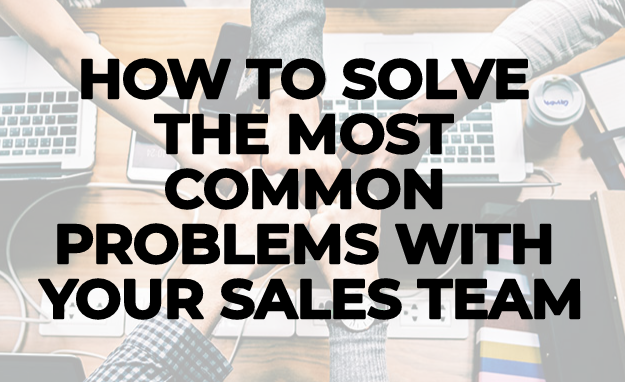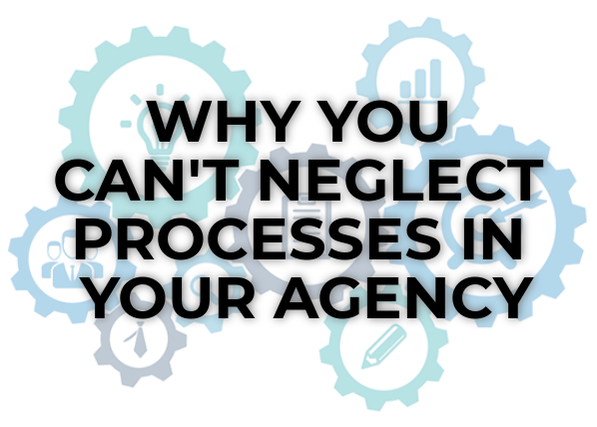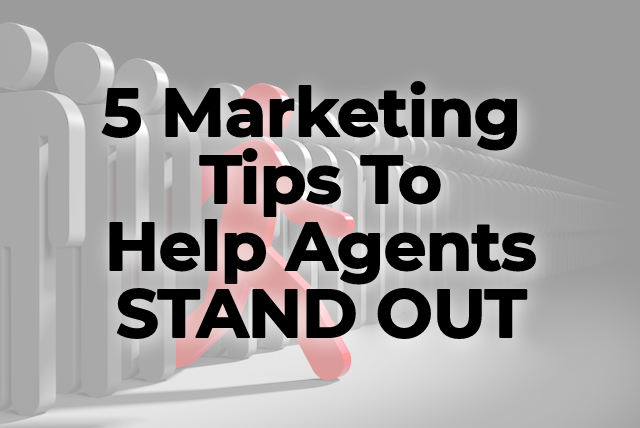|
We started Insurance Soup on December 28, 2015.
We started adding people to the group on 1/3/16. In 5 years. Not sure if you have noticed, but over the last couple of years... Nationwide. Allstate. Farmers. Liberty Mutual. MOST of the largest captives. ...have done something substantial to rock the boat with their Agents. Reduced commissions. Forced the use of a service center. Available to independents to sell now.. Contacting your clients behind your back to "help" (move) them. Contract changes. You name it. The list continues. And every single time one of these giants make an announcement like this Career Insurance Agents receives an influx of Agents FINALLY ready to make the move they have been putting off for the last 2-5 years. FINALLY ready to go independent. You know what has NOT happened ONCE since we started CIA? We have not lost a SINGLE Agent to a conversation about how the captives just offer a better set up. NOT A SINGLE ONE. The bottom line is this... carriers do what carriers do. They consistently look for ways to improve margins at the cost of their sales force. How long until they realize they can put some monkeys on the phone in a call center and pay them 35% - no renewals - and continue along without the need of the local Agent? BUT MIKE, BUT MIKE... I love (insert carrier name here) and I drink ALLLLLLL their Kool Aid and let me tell you it is DEEEEEELICIOUS. We know. We have watched you try and share the same Kool Aid any time your carriers name gets brought up in here in a negative light. Looks decent but honestly Kool Aid is a kid's drink being given to you because that's precisely how they treat you. Like parents who owe you no explanation for what they are doing because you're just a child and have no say. But here's a Kool Aid. Mystery flavor. Guess it right and we will give you a $10 gift card to Chipotle or a free after hours pizza if your team smiles and dials for us. But for the better part of 5 years now one... by one... by one, all these carriers who you guys are generally willing to go to war for when spoken poorly, they insult your intelligence. Mock your ambitions and roll their eyes at your dreams by making it increasingly more and more difficult to earn a good living. And every single time they make an announcement... we obviously have conversation about it in Insurance Soup. It's kind of what we do. And there is always a solid 15% of the Agency force that reads the bad news and how corporate spins it to try and put lipstick on the massively large pig they just handed you. And these Agents FALL IN LOVE WITH THE PIG. They tell their peers that how these moves are AMAZING for them, and they literally never are. Helps like 4% of the Agency force in the short term that can exploit something particular to their situation but 96% lose short term and 100% lose long term. And every single time CIA catches dozens of Agents in the fall out. And every single one of those Agents (we are literally at 100% conversion) go on to have way better first years independent than they did captive and then go on to have even better Agencies than they ever had captive shortly thereafter. We have Agents that were captive for 3, 5, 8 years that wrote more their first year independent than they did their ENTIRE TIME as a captive. And every single time we even try and point this stuff out, all the Kool Aid Kennys come to defend the mothership. But heres the rub. They're not really there to defend the mothership. They are there because they feel as if their career choice, their career decision, the direction they chose to provide for and feed their family is being called into question. Is being painted in a bad light. And THAT is what they are defending. The math is the math. Higher closing percentages. Better commission rates. Better overrides. Better bonuses. More carriers. It all adds up to a significantly better situation. And they try and compare themselves to another independent agent that they feel they're doing better than to justify their decision. Look, I'm doing better than Haywood JaSellme down the block. Ok cool... You know who would stomp a mudhole in Captive you? Independent you. Alternate universe you is so much better than captive you and you have no idea but you're ready to defend your burning boat until it sinks. Despite the fact that the boat itself keeps setting itself on fire. The bottom line is this - captive companies are never trying to help you earn more. They paint every correspondence as if they're hooking you up but you're an owner of an Agency. You make comp plans. When was the last time you created or changed your comp plan to directly help your team where it didn't have some kind of impact on you in a positively financial way? Probably never. Owners of businesses are typically not in the business of cutting margins to pass out higher pay. I am not even going to throw a link for CIA on this post because I'm not actively trying to push traffic our way right now. Our team is ALWAYS super busy bringing on new Agents and this long-ass post isn't to push traffic. The point I am making on this post is that none of these companies are thinking about you. Your dreams. Your career. Your finances. Your ANYTHING. Not even a LITTLE BIT. And you defend them to the core even when they are out of bounds and directly impacting you in a negative way. And ultimately, eventually they do something that impacts you directly and then you go independent. And we catch you. And while we don't have the "told you so" conversations with you guys too often here in Soup, every time they make an announcement that impacts the Agency Force, privately we say to one another, "Told them so." Independent Agents control their destiny. They push their book towards the right carriers for their clients and the right carriers to help them build a financially sound business. Carrier makes a change they don't like? They move the book to a different carrier. Carrier makes a change a captive doesn't like? They have to deal with it or sell. But year in and year out at least one company announces something that send Agents running into CIA's arms. And Agents that would have, could have, should have, opened up independent 1, 3, 5 years ago, are starting their journey at a point where they already could have had a bigger book than they ever had captive if they had just gone independent when they first had the thought. Your captive carriers aren't improving any of your situations any time soon. If you're happy there, stay there. But if you're even having the SLIGHTEST of doubts, or you're waiting for just ONE MORE ANNOUNCEMENT that you don't like. Get out. They're going to piss in your Cheerios again. You're not going to like it again. And you will have put off a decision that is ultimately inevitable given the fact that all your captive carriers have many more announcements on the horizon that will frustrate you, reduce your chances for success, and leave you questioning your decision. Don't wait another day to make a decision that's best for you and your family. Your captive carriers are not taking you, your family, your staff, or your Agency into account when they make any of their decisions. Make 2022 the year that you take control of your career instead of playing 1099 branch manager.
0 Comments
Like most insurance agents, you probably start with a templated question and answer session centered on the policy specifics when you receive a new insurance lead, regardless of where it came from. Character inquiries that seek the same information, as important as they are to ask, can be framed in a variety of ways that sound conversational. Interview style inquiries aren't just for gathering data; they're also for making the lead feel at ease, disarming their apprehension about sharing personal information and handing over money to a stranger, and informing them of their options.
The more information you have on a potential customer, the better chance you'll have of providing sensible responses. Set the stage for evaluating each lead's sales potential, delivering, and closing the transaction. When you contact a new insurance lead, try one or more of these questions that Mike McCormick, one of our Soup founders swears by, and watch how the conversation changes. "Sometimes asking a few very simple question can make all the difference. "What do you mean?" "Can you explain?" "Tell me more about..." Those three phrases are ones I use almost all the time with people both in sales and friendships. I was told recently by a friend that I seem like I talk a lot in forums but when we chat in the messenger I let them talk so much. The observation is on point. And it is by design. Often times our prospects or clients give us key clues about their wants and needs and as salespeople in sales mode we often miss out in key queues. Because we're in sales mode, we're waiting to speak rather than listening. Waiting to drop a word track or show off some knowledge. Sometimes someone says something that makes sense but if you probe a little deeper you learn that you misunderstood what was said or what was said had a deeper or more important meaning to someone than simply the comment that was made. Do not be afraid to dig into your conversations a little bit. A longer conversation provides you more info, makes your prospect less likely to want to sit on ANOTHER phone call, builds your rapport and ultimately your relationship. And let's call a spade a spade...most Agents are not working as much as they should to begin with. Make the most of the time you have with your prospects. If they're giving you time, give them yours. Learn about them. Care about them. Really dig in. You will lower your attrition numbers. You will increase your penetration. You will have more meaningful relationships. You will get more referrals (if you ask for them... and damn it ASK FOR THEM!!). Stop rushing or ignoring queues from the people that that are giving you their time so you can get on to the next one. You will see a shift in the quality of your conversation, an increase in your close percentage, and a drop in your attrition. Any agent will tell you that space is one of the most expensive costs of running a brick and mortar business and that renting a space is a long-term obligation. Because of this, you should not only stay in good relations with your landlord, but also work out a deal that's in your business' best interest. Remember that leases are typically written for the benefit of your landlord, so you've got to be diligent and ensure that your rights as the business owner are protected as well.
If you're looking for your perfect space, here are some tips to consider when rents are on the rise. GET TO KNOW THE NEIGHBORHOOD This is a must. Not only will where you set up shop affect how accessible you are to your clientele, it's also going to determine the cost. Get the current market rates from a commercial real estate agent or conduct your own research before starting your search. Before you begin talking with a landlord, you should do the market research on alternative locations if the area you want to open your doors in is too expensive for your business to support. Consider researching past trends to see what might encourage landlords to give you a lower rental rate if you want to negotiate a lower price. Having this knowledge helps you negotiate better. WHAT ARE YOU PAYING FOR? We've all signed leases on a personal residence before, but most times, a personal lease is very different from a commercial lease. Everything from property taxes to cleaning services may fall on your wallet, so double-checking what is and isn't included in your rent is critical. Most commercial leases have a "base rent" that is fixed for the total time of the lease and has a yearly cap increase, but operating expenses paid by the tenant, such as repairs and maintenance, can rise dramatically over time. As a result, you'll want to strive to make sure that the conditions of these running expensesare as transparent and predictable as possible when negotiating the lease. WHO'S RESPONSIBLE IN CASE OF EMERGENCY? If you're in insurance, you know that value of protecting yourself when a major investment is on the line. For tenants on the lease of a commercial space, what appears to be a little issue can quickly escalate into a major one. Not only are business owners responsible for the damage their employees create, but also for the damage their consumers inflict. The important thing to understand is that if something happens, such as a flood from your kitchen or bathroom that affects other renters, you will be responsible for all of the damage and will have no say in the repair costs. In this circumstance, the greatest thing you can do is make sure you have adequate insurance that covers these types of situations. This is a phrase that is rarely negotiated by landlords in a lease so agents should have the upper hand here. HOW LONG IS YOUR COMMITMENT? In determining the lease length that would be suitable for your business, you will need to consider the health of the business. You will usually find that landlords require a 3-5 year lease. Therefore, the longer commitment you can make, the lower rent you'll pay. Simply ensure that you lock in a rate or a maximum price increase per year, and if you must sign a shorter 1-2 year lease, include a favorable first-refusal renewal provision so that if the location works out, you are not forced to relocate. Furthermore, if your business gets a lot of foot traffic, you may use it to negotiate a lower rent if you agree to stay for a longer period of time, as the health of a property is greatly dependent on the perception of success, which will attract other renters. Finding the perfect space for your business can be challenging but it's not impossible. Your best strategy is to find a neighborhood that's right for your business and where it can thrive. By being knowledgeable about both the good and the bad aspects of commercial real estate from the business owner's standpoint, you're sure to find the perfect place to set up shop. A mastermind group benefits from the synergy of energy, commitment and excitement of it's participants. Together, the founders of The Collective raise the bar by directing conversation, setting and implementing goals, brainstorming ideas, and creating a space where the members of the mastermind can support each other with complete honesty and respect.
The Collective Agency Council, at it's core, is no different than most other mastermind. But there is one thing that sets this group apart from the others. And our founders recently discussed this below in Insurance Soup on Facebook. "Sometimes we forget to talk about things in here. Prior to evolving our marketing mastermind, Career Agent Concepts, into an AGENCY Mastermind - The Collective Agency Council - we used to flex a bit regularly about the results our clients get when learning to advertise with us. We have been either nominated or won a number of awards over the years both within the marketing and insurance industries for the work we do both with our own stuff and with what we teach. Late last week we taught an oldie but a goodie and what's fun about this strategy is that it works both organically AND as a paid ad. What you are seeing below are results of a little campaign a number of our Agents are running organically. They're not spending money to generate these leads. These are all coming in at zero cost. If they decide to utilize the campaign as an actual ad, they will bring in leads for about $2-5 depending on marketplace. They convert depending on audience between 10-15% on their first run through with other leads converting to policies over time with a strategic drip. Zero dollars spent. Flush calendars. Plenty O' Premium. We haven't really flexed the ol' King of Insurance Lead Gen muscles in here lately. Mostly because we've been trying to drive other conversations that feel more relevant to the moment. Conversations about employment. Efficiency. Systems and processes. Behind the scenes we believe that those are by and large where most agents need help, even though they THINK it's a not enough leads thing. And that's the cool thing about The Collective. We really deep dive on all things Agency. Behind the scenes JUST THIS WEEK we have had Agents we know are strong in these areas (due to the data we collect on everyone as they join) share in the group:
Strong, strong topics, actionable presentations and advice. Compound all of this with well north of 50 hours of already recorded training around so many things - lead gen, marketing, automation, referral partners, agency, business, sales, and more. Compound with the amount of referrals everyone inside are passing and finding for one another. Compound with the live events coming up starting early '22. The Collective is the family of agents - the data driven blueprint and the battle tested strategies - that create success in the insurance industry in 2021. And BEST OF ALL.... WERE WILLING TO PROVE IT. You can check it out for $1 for the first month. Dont love it? Bail. No harm, no foul. But if you are looking to learn, expand, and become better, you'll see whats happening on the inside and being a smart business owner who makes generally good decisions, you'll become a part of the best family in all of Insurance." This piece originally ran on EMC Insurance.
Employees spend about a third (or more) of their lives at work. So keeping them safe, healthy, happy and committed to your company is a huge benefit to them, as well as your business. A company wellness program can promote and help achieve these goals. Depending on the program, employees may have access to physical and mental health care, receive assistance for living healthier lives and achieve a positive work-life balance. Well-designed company wellness programs have been shown to reduce sick leave and disability management costs and may even reduce health care costs. Beyond this financial return on investment (ROI), employers can reap benefits such as increased employee morale and engagement, more successful recruitment and retention, and improved on-the-job performance. While there are many ways to develop a meaningful wellness program, the following steps are crucial to putting your program into action: Get management commitment Time and resources are vital to making a program work well, so you’ll need buy-in from management. Having management on board will help secure funding and allow you to move forward with your ideas. Additionally, support from leaders will inspire others to join in and take the program seriously. Create a wellness committee Ask for input from employees before getting your program off the ground. This will help them feel connected and engaged with the program. Select a committed group of workers to help explore and discuss options, present possibilities and carry out the chosen actions. Committee members can also be responsible for promoting the program, planning activities, communicating with management and employees, and facilitating program evaluation. Committee size will depend on the number of employees and scope of your program. Typically, a committee of 6 to 12 is adequate. Make sure there is representation from various employee shifts and departments. You may also want to consider rotating committee members over time so more employees and fresh ideas can move the program in new directions. Collect data Knowing your claim costs, employee demographics, health trends and attendance records can help you predict what actions will best serve your employees and company. As a starting point, look at some of the most common health issues—tobacco use, obesity, stress and high blood pressure. You can also ask employees to complete a wellness survey. Include questions to help you identify what they want to learn about, as well as how they want to receive information—through gym memberships, on-the-job stretching exercises, seminars, lunch and learn sessions, newsletters, emails or other activities. Develop a plan Set specific goals and measurable objectives, establish timelines, designate committee member responsibilities, create a budget and decide how you’ll measure results. Be aware that as your plan unfolds, you’ll need to be flexible. You may need to adapt or switch priorities if requests and experience indicate that a different focus is needed. Choose actions Set a plan that balances employee needs (i.e., risk factors) with their wants (i.e., topics of interest). Whatever you choose, be sure it supports employees physically, mentally, socially, emotionally and financially. Select a variety of actions for each priority. For example, if weight loss is a goal, revamp your vending machine to offer more healthy foods, start a lunchtime walking group, reimburse costs for weight loss programs or gym memberships, and start a support group for those trying to lose weight. Create a supportive environment Work toward policies and practices that meet your employees’ needs and empowers them to get involved. Offer the support they need to meet their goals and award them when they do. Consider giving acknowledgement in company newsletters or congratulations during a company wellness seminar. Support can also come in the form of financial assistance, such as discounts or reimbursements. And be sure to give encouragement along the way. This can come from your committee, as well as supervisors and leaders in your company. Evaluate and modify Regularly assess your program to see what’s working and what’s not, then make changes accordingly. Look to your employees for feedback on possible changes and adjustments. In addition, while it’s valuable to evaluate your ROI through lower claims and insurance costs, your greatest savings may be in fewer absences, greater employee retention and higher productivity. Whatever we do in our lives, there are always certain people we feel we can depend on for support. Doing a walk for charity? Sure, a good chunk of your friends list on Facebook will probably donate. Your kid's having a school fundraiser? Yea, your parents, brothers and sisters are going to help him sell out of wrapping paper or raw cookie dough. Whatever you need. But, if you've noticed that biggest supporters of your insurance agency ARE NOT your friends or your family, don't worry. You're not alone.
Below, one of our fearless leaders in The Soup shares a story about just WHY strangers are probably going to support you in your business endeavors more than the people closest to you. It's more common than you might think. Check it out! "I figured I would share this thought in here since the story is getting laughs elsewhere on the interwebs right now. Why won't some of your friends and family do business with you? It's because they know you. And sometimes, that doesn't serve you well. In 7th grade I met up with some friends at Brady Park in Massapequa to play some basketball and manhunt. Was a usual afterschool deal a couple times a week back then. We all rode our bikes to the park and would lock our bikes up while we played ball. While there, my friend Andrew was showing off a brand new lock he got for his bicycle. Andrew's new bike lock was NOT all that impressive to my friend Tom. Tom was an honor student and went on to become a surgeon in the Navy. He worked on victims of the Boston Marathon, did 2 stints in Afghanistan, and has been based in Tokyo and other areas over the years. We were even in a Magnet program for the gifted and talented together from 4th grade to 6 grade. Very bright guy. Tom, in an effort to show Andrew how stupid his bike lock was, LOCKED HIS OWN HEAD TO THE BIKE RACK to show us how easy it was to get out of. And he couldn't get out. The 10-12 of us that were there then took turns the next 3 hours kicking him in the ass while leaving his stupid head locked to the bike rack. And because of this, I will never allow him to operate on me. You have friends and family that know these stories about you. You're the dum dum that they have that dum dum story about. You think they're going to trust you with their most important assets? Don't take it personal when family and friends pass you up for insurance. For starters, they're helping you dodge a bullet in many cases. But also, their knowledge of you runs too deep to take you seriously as a professional. They've seen you fart and burp at the same time right before puking in a waste paper basket in your underwear. They know how much you drink. They know that maybe you werent the most loyal guy or gal in your relationships at some point. And you expect them to want to do business with you? Leave business to the people who dont know you. They're going to like and trust you more in MANY cases." This post originally ran on NowBlitz.com.
For any company vying to sell a product, the sales team acts as a multiplier to revenue. No matter how amazing the marketed product, a weak sales team is a sure-fire catalyst of business insolvency. As with any problem, the crucial first step is to identify from where it ultimately stems. Here’s how to identify and how to motivate a weak sales team: 1. Unmotivated Personnel Unmotivated personnel is usually the consequence of several outstanding issues. Perhaps employees feel underpaid, overworked, or otherwise without incentive to complete their job to their full capabilities. As with any underperforming employees, the solution varies with circumstance: Underpaid Workers Perhaps you’re wondering how to motivate a weak sales team that feels underpaid. The solution is simple. Workers that are genuinely underpaid should receive more money in some form or another. A commission rate for products they manage to sell is usually in order as it provides monetary incentive to sell more products. Overworked Employees Overworked employees should have their hours reduced to induce rest and relaxation. More workers can be brought on to compensate for the reduced hours of overworked employees. Paying higher commission and reducing hours only works to a point, however, as competent salespeople are few and far between, and a certain amount of overwork is acceptable in this market of scarcity. That a balance exists is a given; financial analysis with real data should be done to determine working hours and number of workers. 2. Unknowledgeable Salespeople Even world-class salespeople are less effective when given improper information about their marketed product. Although Research & Development and Sales/Marketing are generally compartmentalized into different departments, there still must exist a modicum of communication between the two. All too often, salespeople are misinformed about the capabilities of the product they are trying to sell. A product, underperforming compared to expectations, harms the reputation of the company and results in falling sales long-term. 3. Ill-Informed Potential Customers On the flip side, consumers not being fully informed of the full capabilities of products leads to an immediate drop in sales. In both of these situations, the misinformation of salespeople and consumers cause a weak sales department. It is imperative that management bridges the gap between those who design the product and those who must sell it. Depending on the size of the company, this can be done through a formal presentation, from the R&D department to the marketing department. In a smaller enterprise, a simple conversation between members of the two groups should suffice. 4. You Haven’t Set Deadlines People are naturally predisposed to work more efficiently if given deadlines. While there is an argument against the imposition of sale quotas, citing worker stress and their resorting to unethical sales practices, deadlines are still beneficial to an extent. When given a deadline, workers perform more efficiently, motivated by the rewards and punishments packaged with the deadline. For example, rewards could include monetary incentives for surpassing the quota in each pay period. In contrast, punishments might include being let go for failing to meet the quota an excessive amount of times. Of course, there are ethical and financial considerations: labor laws and regulations must be followed. Rewards and penalties must also not be applied to too extreme an extent. 5. You Should Consider Your Workers’ Happiness Of course, sales quotas are not the only reward and punishment system available to employers, and there are studies that show that reward and punishment systems are not effective in every case. Contemporary politics places more importance on as a factor to their productivity, the conventional wisdom being “a happy worker is a productive worker.” It goes without saying that an unhappy sales team is an unproductive sales team. Workers dissatisfied with their job are naturally inclined to slack off. That’s because they’re less concerned with job security when they have no love for their job. The forgone conclusion is that an improved work environment is crucial to the motivation of a weak sales team. The improvement of the work environment is not entirely an objective process. Even something as simple as being nicer or less curt towards your employees can brighten their day enough to improve their productivity. In a large company where multiple levels of management exist, the upper echelons must be careful so as to not prioritize meeting quotas over compassion for their workers. An effective manager who is disliked by his or her subordinates will suffer their lack of initiative as a dire consequence. Meanwhile, a less competent but compassionate manager can have his or her faults compensated for with subordinates that take initiative because they’re happy at work. Those are several ways to motivate a weak sales team. A well-planned combination of these suggestions can heavily influence, for the better, the salespeople under anyone’s command. By extension, the success of the company has its basis in the strength of its salespeople; the company as a whole will get stronger with its personnel. If you've been paying attention, and we're sure you have been, you've noticed the "HELP WANTED" signs on office doors all over the country. From the family-owned diner on the corner to fast food chains to doctor's offices and beyond, no one wants to work. And while you may have open positions in your agency that you're trying to fill, there's no guarantee that you're going to even be able to attract an employee who REALLY WANTS TO WORK.
Below, Mike shares his thoughts on one very simple thing you can be doing in your agency to help out your understaffed and overworked agency at this very moment, without risking a hefty salary on someone who may not even show up when you need them. Check it out! "Right now you have an over the top abundance of people who NEED - past WANT - to save some money on their insurance. Right now many of you are struggling to find the MANPOWER necessary to drive the numbers you are trying to hit. And yet, with automation, you could have each and every person in your office so flush with opportunity they would not even have to pick up the phone to make an outbound dial to get a quote. But for some reason that's not a conversation many of you are willing to have. Sitting in your office, day after day, smiling and dialing, some days making 100 dials with 10 people picking up and 2 or 3 allowing you to quote. Some days with the best of intentions on making the hundred dials but only getting around to 30 with no quotes, because office stuff. Yet, you could have a program dropping hundreds if not THOUSANDS of enticing messages, timed out throughout the day. 25 messages going out every 15 minutes for 8 hours. 800 messages going out. Bump it to 50 / 1600 if you're a bigger office. Bump it to 100 / 3200 if you're huge and simply have your phone ringing... or your calendar registering with person.... after person.... after person saying "I just got a message from you about my insurance.... let's talk." But instead the conversation is about how we're struggling to bring on new people. How about getting your EXISTING people working for the full 8-10 hours they're there? MOST of us have people sitting around twiddling their thumbs or forcing themselves to use ineffective and exhausting prospecting methods when they COULD be QUOTING AND SELLING ALLLLLL DAYYYYY ERRRRRYYYY DAYYY. But instead you're trying to figure out how you can put some fancy job offer and compensation/benefit package for people who are going to ghost your interviews and potentially not show up for their first day. You're looking to OVERPAY a PERSON to do the exact same thing as the other people in your office right now. Smile and Dial 5-6 hours out of the 8 and hopefully pick up an hour or two of productive activity as the result. You COULD have those people wasting those 5-6 hours dialing every day just quoting, selling, and binding. Can I ask you why you're doing this? We are a year and a half into this pandemic. We are not seeing signs of improvement, in fact, many would argue that this employment situation is going to continue to get worse. There are over 10 million open jobs right now in our country. 10 million. They ain't coming to work for you unless you get super creative and overpay, and at that point it's a crap shoot if you're even getting anyone worth the pay. OR, you could have a machine get those calls and messages done for you for LESS than the price of a VA and have the opportunity land in the lap of the people in your office that you already employ and know can close the business. Unless your people suck. I've got no solution for you if your team sucks. You're stuck with suck right now, but at least you can give the suck more at bats.. A broken clock is right two times a day and more at bats will help a weak team close more business too." Lots of agents underestimate the importance of processes as a rule in their insurance agencies. And yes, it's likely because processes in the insurance industry get a bad rap. They're usually rigid, time-consuming, and tiring. The automation of insurance workflows helps insurance companies streamline processes and improve outcomes but there will alway be the daily grind of lead gen, cold-calling, following up and trying to get as many referrals as possible.
The more business an agency has, the more difficult it becomes to manage agents, commissions, clients, EVERYTHING, and this means it's more likely that things are to fall through the cracks, which is why your processes become so important on a daily basis. Below is a quick story Mike shared recently in Insurance Soup on Facebook. As an agent starting out, he thought these 2 simple suggestions from his higher ups we outdated pieces of advice, until he made it a process and started to see results. "You guys know by now that I am not a huge subscriber to many corporate messages about marketing. I find them to be more branding for them than advertising for you and extremely bland in their approach in trying to garner interest from prospects. However, there is one thing that I personally DID NOT SUBSCRIBE ENOUGH TO in the beginning that changed things quite a bit for me when I finally did. It was the idea of asking every person for referrals and having the conversation about life insurance with everyone. Originally I rolled my eyes at the notion, not having enough of my own experience to really have a true and educated opinion. I based my opinion on my gut instinct that "it wont work" and the collective grumbles of other agents at rah rah sessions when we would hear those wise words. I have to say at this point in my career that I agree. Every person. Every time. It's the age old "Miss all the shots you don't take" ideology - which has a ton of truth in it. When I started asking every person every time (un)ironically my production and referrals started going up. I uncovered a life case asking an 18-year-old who then introduced me to his parents who still had younger kids. I asked a 20-year-old renter who unbeknownst to me from our auto insurance conversation, had a 8-month-old at home - someone I would have assumed didn't need it prior to asking everyone. Referrals - same thing - every person every time. It became part of what we did. Good service? Got anyone we can talk to? Saved money? Got anyone we can talk to? Good claim resolution? Got anyone we can talk to? Email signature - Got anyone we can talk to? Automated text/email to book 3x a year thanking them for business and.... got anyone we can talk to? And sonovagun the referrals began to pour in. When you make the commitment to do something as part of your process it is nearly impossible for you to not see a lift in that area of your business. Do not try to improve in an area. Commit to it and see it grow." This post originally ran on Ritter Insurance Marketing.com.
There are two types of insurance agents: the memorable ones who get calls from prospects looking for assistance and the easily forgotten who prospects never call back. If you’re wondering how you can catch the attention of more prospects, we’ve got five marketing tips to help you set yourself apart from other agents in an unforgettable way! 1. Give Your Business Card Some Flair Every insurance agent should have a business card, but your business card shouldn’t look like every other agent’s! It should definitely communicate the basics about you and your business — your name, title, cell phone number, email address, website, and office address (if applicable) — just as your competitors’ card will do for them. However, there’s more to business cards than that. You can make yours catch more clients’ attention by changing certain design elements to make them more memorable or stick out! Consider all of your options:
Be sure not to go overboard… you still want your card to look professional and be easily readable. You just don’t want it to get tossed to the wayside on someone’s table, or worse, in their trash can. If you can swing it, work with a professional graphic designer for assistance. Insurance is your specialty; designing eye-catching materials is theirs! 2. Expand Your Credentials Anyone can call themselves an insurance agent if they’re licensed to sell insurance plans; but, only certain agents can call themselves Certified Insurance Counselors (CIC) or Certified Financial Planners (CFP). Adding special designations behind your name will only help build your credibility and trustworthiness in the eyes of clients! Possible health insurance designations for agents:
You can usually find or take the courses needed to get designations like these, or others, through professional organizations like the National Association of Health Underwriters(NAHU), the National Association of Insurance and Financial Advisors (NAIFA), or America’s Health Insurance Plans (AHIP). In fact, these organizations offer many learning tools and events to help agents expand their knowledge and grow professionally! If you’d like, you can also get full access to Knight School, Ritter Insurance Marketing’s proprietary multi-media training experience for insurance agents, for free just by registering with our website. 3. Learn a New Language Not only is learning a new language great for your mind, but also your career! In the U.S., 67.3 million people speak a language other than English at home. To put it into perspective, that number has more than doubled over the last 30 years. You can expect around one in five of your fellow Americans to speak a different language! If you’d really like to stand out from the crowd, take some lessons on how to speak foreign languages like Spanish, Chinese, Tagalog, Vietnamese, Arabic, French, or Korean, depending on your local market. Anyone who provides customer service knows language barriers exist and can cause hurt and confusion to both sides. In insurance, they can be detrimental to understanding prospects’ true wants and needs and successful enrollments. Work to break these barriers down, and you’ll corner underserved markets and gain trust and business over your non-bilingual peers for sure! 4. Improve Your Writing & Grammar Speaking of communication skills, how’s your writing and grammar? If you write like a five-year-old or tween texter, then you may be memorable, but for the wrong reasons! Spelling and grammar errors lack professionalism, and nobody wants to communicate with a poor communicator. That said, you don’t have to be a copywriter or editor to write well enough to get the job done. You just have to be able to say what you want and need to say in a professional manner. If writing and grammar aren’t your strong suit, don’t worry! There are several blogs and online tools out there that can help. A few of our favorites are Grammarly and their blog, English Language & Usage, plain old Google, and spell checkers already built into email platforms and Microsoft Word. Plus, we have a dedicated post covering best practices for writing emails to insurance clients that can help any agent improve their writing! 5. Get Involved in Your Community If you want community members to come to you for help, then you need to make yourself visible as a resource to your community! The best way to do that is to serve your community in multiple ways, not just with insurance. Do you go to a church? There are likely many community service opportunities you could partake in through your worship center. Alternatively, you could sponsor local events or sports leagues or volunteer at the community garden, library, thrift shop, etc. However, you can expand your roots and meet new people, go for it! Community involvement is an excellent way for agents to build their brand without spending tons on marketing materials. It just takes time and a willing spirit. Everyone receives a lot of emails, direct mailers, and advertisements in a day — not to mention in a week, month, or more! The trick is to find a way to rise above the noise and connect with your prospects on a deeper level — to give them a good reason you’re worth remembering! Do that, and you’ll be the type of agent who stands out and gets the calls. |
Archives
April 2023
Categories |
Home | Terms and Conditions | Earnings Disclaimer | Privacy Policy | Contact Us
Copyright© 2023 - Insurance Soup, LLC
Copyright© 2023 - Insurance Soup, LLC












 RSS Feed
RSS Feed